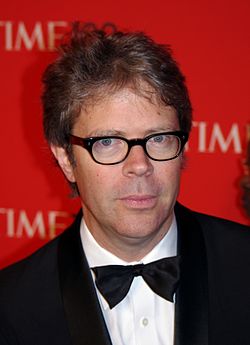Jonathan Franzen Quote
There are obvious psychological stresses on a person in a group, but there may be even greater stresses on a person in isolation. Most higher primates, including humans, are intensely social, and there are few examples of individuals surviving outside of a group. A modern soldier returning from combat goes from the kind of close-knit situation that humans evolved for into a society where most people work outside the home, children are educated by strangers, families are isolated from wider communities, personal gain almost completely eclipses collective good, and people sleep alone or with a partner. Even if he or she is in a family, that is not the same as belonging to a large, self-sufficient group that shares and experiences almost everything collectively. Whatever the technological advances of modern society—and they’re nearly miraculous—the individual lifestyles that those technologies spawn may be deeply brutalizing to the human spirit.
There are obvious psychological stresses on a person in a group, but there may be even greater stresses on a person in isolation. Most higher primates, including humans, are intensely social, and there are few examples of individuals surviving outside of a group. A modern soldier returning from combat goes from the kind of close-knit situation that humans evolved for into a society where most people work outside the home, children are educated by strangers, families are isolated from wider communities, personal gain almost completely eclipses collective good, and people sleep alone or with a partner. Even if he or she is in a family, that is not the same as belonging to a large, self-sufficient group that shares and experiences almost everything collectively. Whatever the technological advances of modern society—and they’re nearly miraculous—the individual lifestyles that those technologies spawn may be deeply brutalizing to the human spirit.
Related Quotes
About Jonathan Franzen
Franzen has contributed to The New Yorker magazine since 1994. His 1996 Harper's essay "Perchance to Dream" bemoaned the state of contemporary literature. Oprah Winfrey's book club selection in 2001 of The Corrections led to a much publicized feud with the talk show host.
